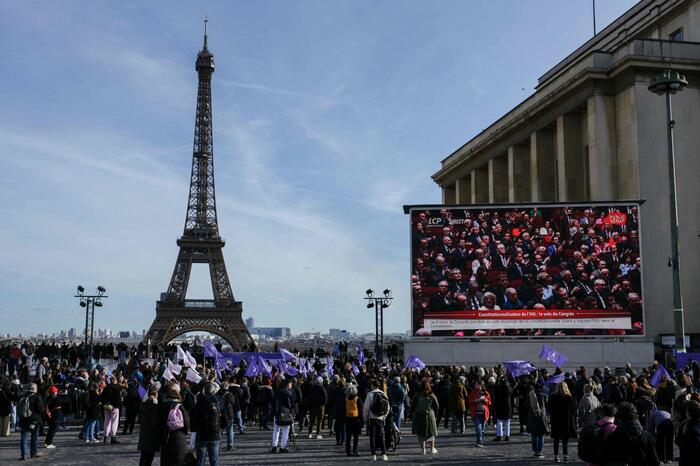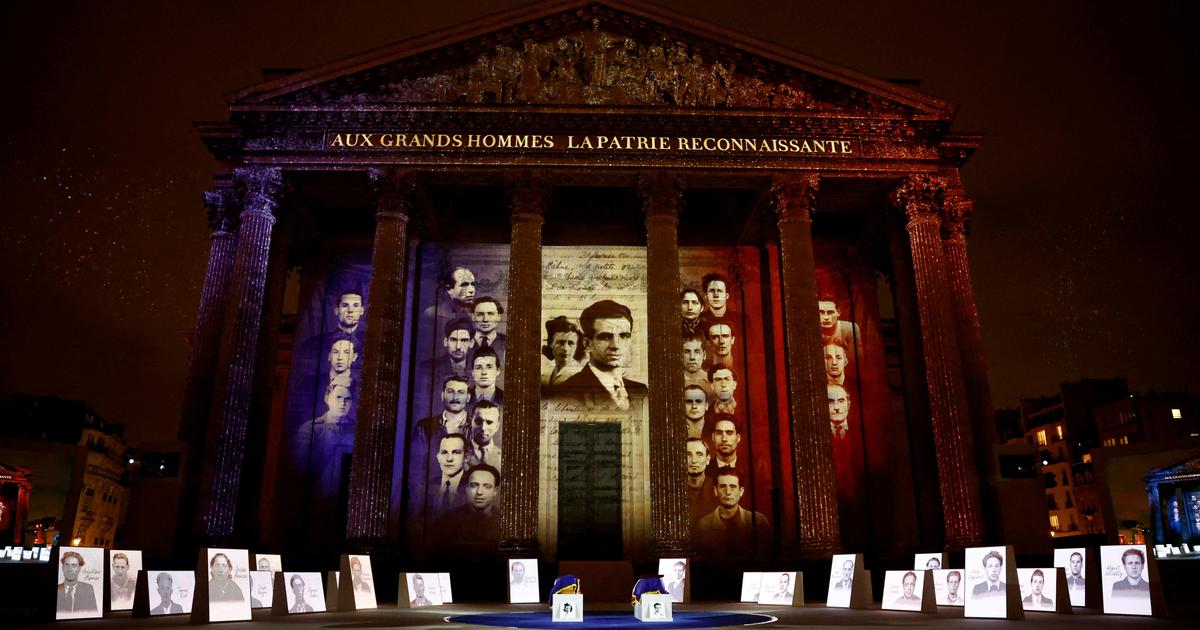Global society
all articles
Will it be a girl or a boy? The answer to this question often decides life and death in Armenia. Each year, 1400 girls are not born in the country. The fetuses are aborted because they are female.
Selective abortion means that. Armenia, a country of three million people, has one of the highest rates in the world.
A major role is played by the widespread belief that sons are valuable and that daughters are a loss. "Selective abortion is related to culture, and sons should ensure the continuity of the lineage, continue the family heritage, and look after the family," says Narine Beglaryan. She works for the United Nations Population Fund (UNFPA) in the Armenian capital of Yerevan. "The daughters usually move to the family of her husband later."
Relationship of boys and girls out of balance
Previously, families had to wait to see if a boy or girl was born. Then came the technological progress. Since the mid-nineties, there are ultrasound machines in Armenia. Since then, the sex, at least with a certain probability, already in the 12th week of pregnancy notice. In the 14th week it is usually clearly visible.
Since then, the number of female births has been falling. From the year 2000, the gender distribution was then acutely out of balance. In that year only 120 girls were born to 120 born boys. At the same time, fewer children are born in Armenia. In the 1960s a woman got on average more than four children, today she does not even get two.
"In Armenia, mostly mothers-in-law put pressure on pregnant women to give birth to a boy, or husbands, and it's often the woman's decision because she wants to give her husband a gift," says Karine Saribekyan. She heads the maternal and child health department, which is part of the Ministry of Health.
The second and third child had a lot of pressure to have a boy. (Read here the protocol of an Armenian whose family urged her to stop her pregnancy.)
more on the subject
"Ten to 15 abortions per woman were normal"
In general, abortions have a long tradition in the region: in the Soviet Union, they were an element of family planning, a form of contraception. Ten to fifteen abortions per woman have been normal, says Saribekyan. This is still going on today: a UNFPA study from 2016 shows that almost half of the Armenians who ever had a partner have ever had a pregnancy cut off.
Since 2016 abortions are illegal after the 12th week of pregnancy in Armenia. If a woman drives her off, she must first attend a counseling session and then a three-day reflection period. Still, the selective abortion rate is slowing down: In 2017, 111 boys and 100 girls were born.
Maja Hitij / Getty Images
Children play in Armenia's capital Yerevan (archive image)
"Many women wait until they see the sex of the children on the ultrasound, then doctors falsify documents and even drive off after the legal deadline," says a gynecologist from Gegharunik, who wants to remain anonymous.
The gynecologist drove off even in the nineties female fetuses. Today, she does not perform any abortions after the 12th week more. She worries about the health of women, saw the head and hands of four-month-old fetuses, it could eventually no longer agree with their conscience, she says.
Many women try to end the pregnancies by their own means. Among other things with the drug Cytotec. In 1985, it brought the pharmaceutical company Pfitzer on the market. Actually, it is used against stomach ulcers and obstetrics, but the drug can also lead to long-lasting and uncontrolled labor - and ultimately to a miscarriage.
Although Cytotec has long been used in gynecology worldwide, the Group had never applied for approval. Pfitzer has not distributed it in Germany since January 2006. In other countries, the drug is still available, in Armenia, it costs less than four euros, says an expert from the Women's Resource Center in Armenia.
Luisa Willmann
Activist Lara Aharonian
Human rights activist Lara Aharonian, known in Armenia and frequently attacked by conservative forces, criticizes the new law prohibiting abortions after week 12. "It attacks doctors and creates hurdles for women," she says. Feminists like them warn that abortion is per se stigmatized.
Aharonian is generally not against abortion, no matter what sex. Rather, she wants to combat backward-looking role models and strengthen the position of women in society. For the selection of female fetuses is a feature of gender inequality. For them it is clear: The topic is not only about health, but about education. The government, says Aharonian, should shift the issue to the education sector.
Luisa Willmann
Irina Hovhannisyan is fighting abortion in Gegharkunik province
125 kilometers from Yerevan, in the east of the country, Irina Hovhannisyan is fighting selective abortion. Here, in Gegharkunik province , comparatively many of these crashes happen. Hovhannisyan wants to teach and educate the serious topic with a puppet theater. After the performance, the spectators discuss. Hovhannisyan shows a poster; Adam can be seen on that. "What would Adam be without Eve?" She asks, reaching for the next poster.
2060 is a critical year, because if things continue this way, it could have an acute impact on the country's demographics. Then there could be a big shortage of girls by 2060. Hovhannisyan is thinking about inviting a pastor at the next theatrical performance. She wants to reach over him those women who are often in the church and more conservative, women who want to ask a man for advice.
Luisa Willmann
A puppet theater should help in the fight against selective abortion
This is something activists like Lara Ahoranian think critically. "It is dangerous to invite clergy into dialogue because they are generally against abortion," she says. In addition, some campaigns would include stereotypes and thus push women back into a specific role. But Ahoranian has hope.
In April 2018, with a feminist group, she was part of Armenia's "Velvet Revolution", at the end of which the corrupt government of Prime Minister Serzh Sargsyan was chased from the court. Now the former journalist Nikol Pashinjan is Prime Minister. Aharonian wishes to remind the new government that women's rights count among the social reforms she promised.
This article is part of the project Global Society, for which our reporters report from four continents. The project is long-term and supported by the Bill & Melinda Gates Foundation.
What is the project Global Society?
Under the title Global Society, reporters from Asia, Africa, Latin America and Europe will be reporting on injustices in a globalized world, socio-political challenges and sustainable development. The reportages, analyzes, photo galleries, videos and podcasts appear in the Politics Department of SPIEGEL. The project is long-term and will be supported over three years by the Bill & Melinda Gates Foundation (BMGF).
Are the journalistic contents independent of the foundation?
Yes. The editorial content is created without the influence of the Gates Foundation.
Do other media have similar projects?
Yes. Major European media such as "The Guardian" and "El País" have created similar sections on their news pages with "Global Development" or "Planeta Futuro" with the support of the Gates Foundation.
Was there already similar projects at SPIEGEL ONLINE?
SPIEGEL ONLINE has already implemented two projects in recent years with the European Journalism Center (EJC) and the support of the Bill & Melinda Gates Foundation: The "Expedition The Day After tomorrow" on Global Sustainability Goals and the journalistic refugee project "The New Arrivals" Several award-winning multimedia reports on the topics of migration and escape have emerged.
Where can I find all the publications on the Global Society?
The pieces can be found at SPIEGEL ONLINE on the topic page Global Society.















